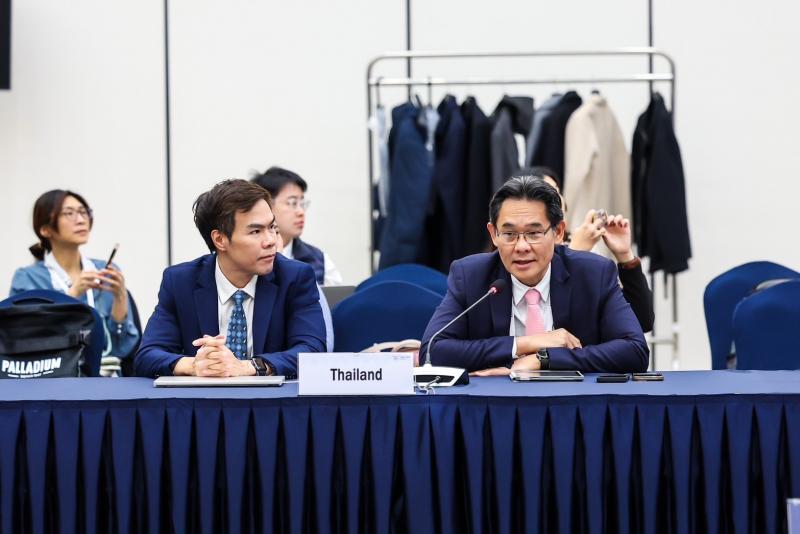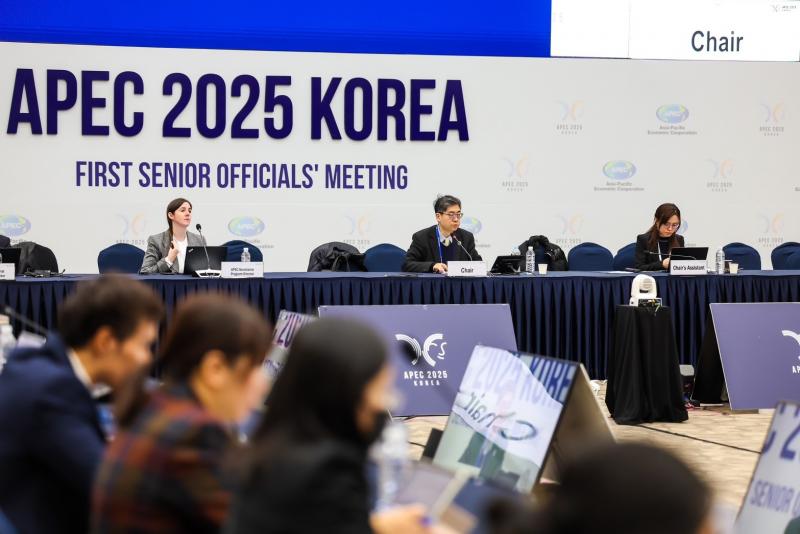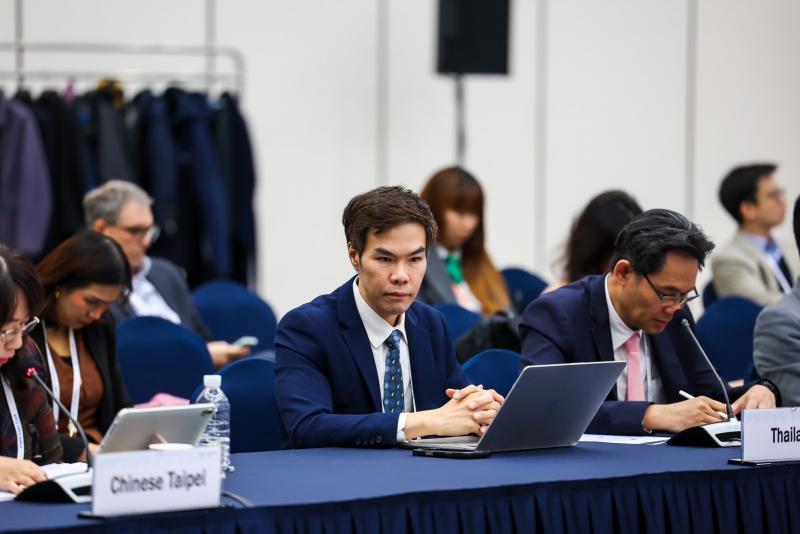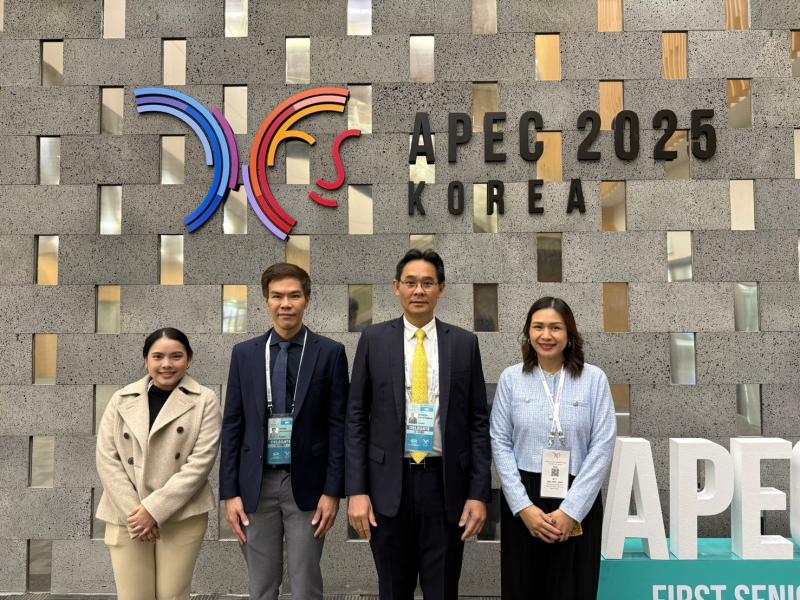On March 3-4, 2025, the Republic of Korea, as the APEC 2025 host, organized the 1st APEC Economic Committee (EC) Meeting of 2025 during the First Senior Officials’ Meeting (SOM1) in Gyeongju, Republic of Korea. Mr. Danucha Pichayanan, Secretary-General of the National Economic and Social Development Council, led the Thai delegation in attending the Economic Committee meeting and other related meetings.
The main theme for APEC 2025 is “Building a Sustainable Tomorrow”, focusing on three key areas: Connect, Innovate, and Prosper. The meeting emphasized the EC’s crucial role in supporting these areas through structural reforms to promote the transition to a formal and sustainable economy interconnected across the region.
The Secretary-General emphasized to the meeting Thailand’s efforts in supporting structural reforms to promote an inclusive and sustainable economy, capable of effectively responding to regional challenges. Particularly, he highlighted the adoption of innovation and technology to increase operational efficiency, which aligns with Thailand’s policy to attract investments in innovation, technology, and artificial intelligence (AI). He also emphasized the development of human resources in these fields to prepare for future industrial changes. Additionally, the Secretary-General expressed Thailand’s commitment to supporting various initiatives under the EC to strengthen the regional economy.
The meeting also discussed upgrading the Strengthened and Enhanced APEC Agenda for Structural Reform (SEAASR) to a new version, currently being prepared by the Policy Support Unit (PSU). In the meeting, PSU presented details of the four pillars: (1) Open, transparent, interconnected, and competitive markets to drive sustainable economic growth, enhance consumer welfare, and promote innovation; (2) Business environment to facilitate and increase flexibility for the private sector in conducting business, which plays a crucial role in the region’s economic growth; (3) Innovation and digital transformation to accelerate innovation development, attract investment, and increase competitiveness through structural reforms such as improving laws and regulations, developing infrastructure, and accessing funding sources; (4) Economic inclusiveness to eliminate wealth and income inequality, as well as structural barriers that limit opportunities and economic participation of certain groups such as women, MSMEs, the elderly, youth, and people with disabilities. Various economies, including Thailand, support the development of these four pillars under the upgraded structural reform agenda as they align with internal policies and operations. Thailand also emphasized the importance of green transition and APEC community awareness on this matter, which should be prioritized and included in this reform agenda, as environmentally friendly development and sustainable resource use will contribute to long-term economic growth and reduce the impact of climate change in the region.
Regarding the 2025 APEC Economic Policy Report (2025 AEPR), Peru, as the APEC 2024 host, proposed the report topic “Structural Reform to Increase Participation in the Formal Economy”. The report focuses on the government’s role in promoting the formal economy, which will support sustainable, resilient, and inclusive growth in the future. It will also consider the economic benefits of expanding the formal economy through policy formulation to promote the transition to the formal economy for disadvantaged and vulnerable groups in the labor market, including the use of digital technology and innovation to facilitate this transition.
Additionally, the NESDC team participated in a joint dialogue between the EC and the Group on Services (GOS) on trade in services and structural reform to exchange information and best practices on new developments in services trade, particularly in technical standards, competition in the services market, and international data flows, all of which significantly impact business operations. They also discussed efforts to support the APEC Services Competitiveness Roadmap (ASCR), which aims to enhance the competitiveness of APEC member countries in services trade to increase access to global services markets, promote economic growth, and sustainably elevate service trade standards in the region in the long term.
The NESDC is scheduled to participate in the 2nd APEC Economic Committee Meeting of 2025 and the APEC Ministerial Meeting on Structural Reform in August and October in the Republic of Korea. These meetings will follow up on past activities and report the results to the APEC Ministers on Structural Reform for acknowledgment and endorsement of the SEAASR and the EC’s future work plan.
News: International Strategy and Cooperation Division
Image: APEC 2025 KOREA



